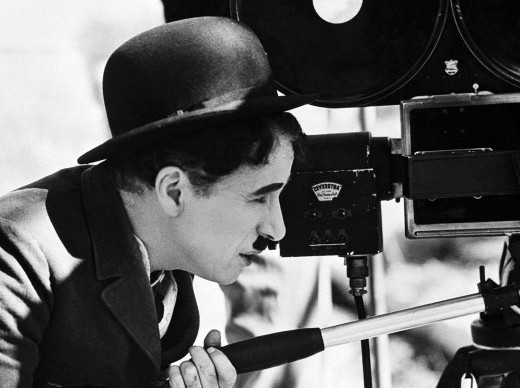The Burden on Novelists to Craft a Great Ending
For this week’s Throwback Thursday, we’re looking at excerpts from past posts on Live Write Thrive that tie in with our exploration on scene structure. Last week’s Throwback took a look at scene endings, so this week we’re looking at novel endings.
From The Not-So-Long Good-bye:
Writers tend to get a bit tired, burned out, and sometimes even a little sick of the story they’ve been crafting for months (years?) by the time they see the home stretch and often they push through or rush to wrap it all up so they can figure out where they left their life, kids, and keys that seem to have gone AWOL while they were hunched over their computer. But the ending scenes carry the next biggest burden in your novel, and so if you’re feeling the urge to hurry up and get the $%&*@ book done, or if you’ve already written an ending but it feels flat and ineffective, I’m hoping some of the suggestions I propose will be of help to you.
I recently heard the expression “Get in quickly and out quickly.” I hadn’t heard that before, and it came from a critique partner who felt my fairly short wrap-up ending to my epic novel Intended for Harm was right on. I recognize the truth in those words, for you don’t want to drag either the beginning or the ending of your novel. A “not-so-long good-bye” might just be a good thing. But it needs to be oh-so-right, short or not.
Oh Great—Another Burden
So, just as you have to cram in so many elements in a few short pages in the opening of your story, you also have to accomplish a number of big things in your last few pages.
I really love writing the last scene in my novels. I feel it’s like a reward to me for getting to the end. And rather than looking at ending my book as a big chore with the pressure on, it’s usually a high, exciting, invigorating time at my computer, filled with joy. Of course, having done my homework in advance (see my soapbox speech on why you really do need to plan out your book ahead!) and jotted notes down as the novel progressed regarding what I need at the end of the book, I don’t have that horrible trepidation of finishing. I’m always a bit sad to write “the end” because by that point I’m so madly in love with my  characters and the world I’ve created that I don’t want to go away.
characters and the world I’ve created that I don’t want to go away.
I feel like Pokey (from the old Gumby cartoon show), who pops out of a book and zooms away on his weird horsie feet that slide along the floor. I hate the zooming-away part. Of course, I could write a follow-up book and drench myself in another journey with those same characters (and I do this in my seven-book fantasy series).
So, your ending takes some serious thought and planning because you have a lot of elements you need to bring out and tie up (not just plot but emotional payoffs as well). I’m not talking here about writing the climax of your book, although in some cases a climax appropriately comes in the last scene, and sometimes on the last page, of a novel.
If that’s the case with your novel, you have an even greater challenge because you’re combining both the climax and the ending at the same time, which can be tricky. Most books tend to work best if the climax comes enough before the last scene or two to allow the reader to do some processing (and the protagonist as well) to the climax—the gigantic event or moment you spent your entire book building to (which answers the MDQ and shows whether or not the protagonist reached her visible goal).
No Pressure—Just Do Everything on the List . . .
A. S. Byatt wrote: “We are driven by endings as by hunger.” No pressure, right? How about some more pressure? Here’s what you should believe (and strive to accomplish with your ending):
- Endings should be unforgettable
- Endings should satisfy both the intellect and the heart
- Endings must wrap up all the loose plot ends
- Endings must clearly answer both the plot and spiritual MDQ (see my earlier post if you don’t know what this is)
- Endings should highlight the novel’s theme
- Endings, if possible, should somehow connect to something in your opening scenes
- Endings, if possible, should bring back a repeated motif used throughout the book (see my post on motifs)
- Endings should leave a significant take-home message or feeling that is powerful and lingering
You can see here that a lot of what needs to appear in your ending won’t be all that hard if you did a good job setting up those elements from page one. Readers want to feel a sense of completion at the end of your novel, that you’ve given them something, and that you delivered what you promised in the first scene.
Aim for That Unforgettable Ending
Three books with endings that blew me away are Barbara Kingsolver’s Animal Dreams (I cried my heart out), Garth Stein’s The Art of Racing in the Rain (yep, cried even harder, but in a gloriously happy way), and Marquez’s One Hundred Years of Solitude (which had me gasping and delirious over how he wrapped everything he set up on the last page!). Don’t you want to create that kind of response in your readers when they read your last pages? I do!












What’s great about this post is that it can apply to any book. I’ve heard many of those same suggestions for writing picture books. Of course, with those the most memorable part can be the pictures.
Great post. Endings are hard. I just finished my first novel and tried to connect all the themes back towards the beginning. Some might find the ending somewhat unconventional but if they really understand the true message of the story and the main character’s arc, I think they might find it emotionally satisfying (and the most realistic ending).
Yes, they are hard, but they are also so satisfying to write. My favorite part of novel writing is crafting that last scene or two.